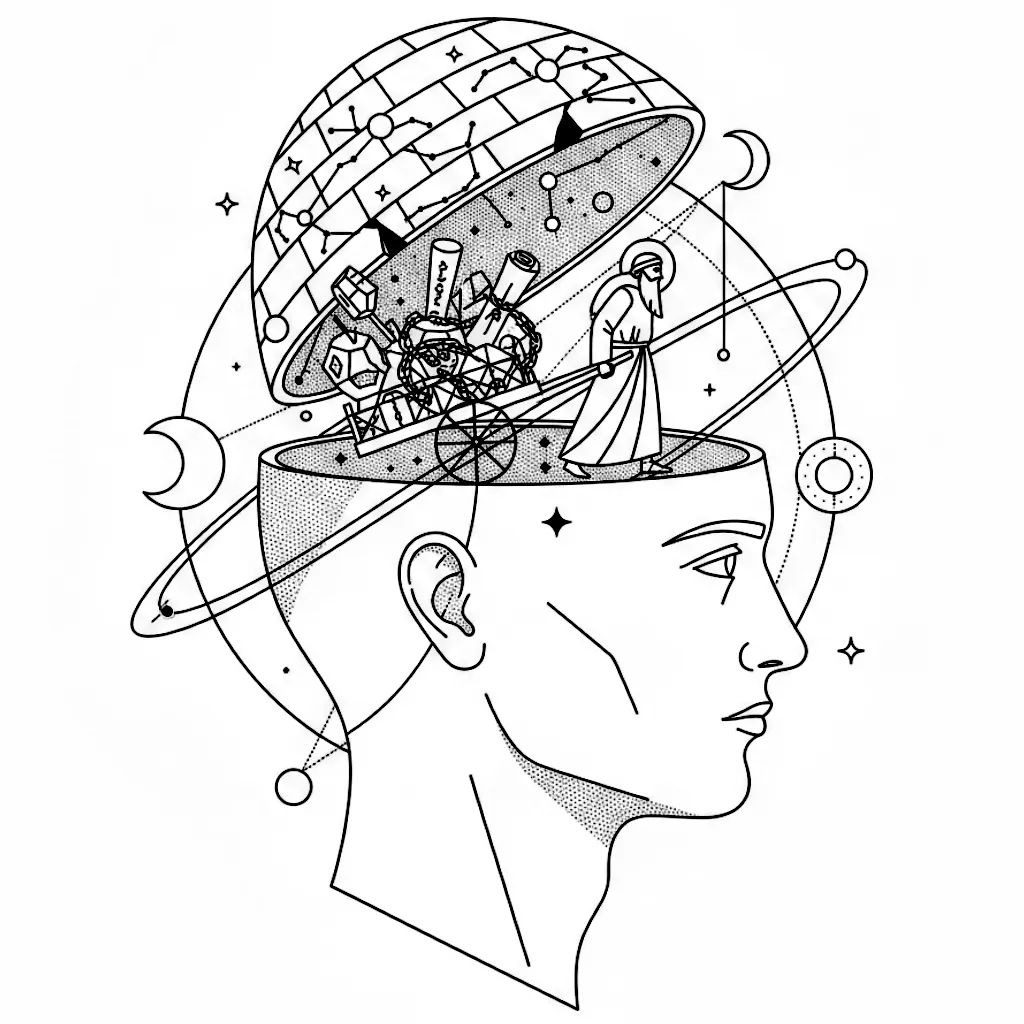
The book of Ezekiel records a striking inner drama in Scripture. Beneath its outward imagery of exile, siege, and prophetic performance lies a psychological movement: consciousness becomes increasingly aware of itself, grows weary of its own resistance, and pushes through the wall of the head to release the mental baggage that keeps it captive.
The Rebellious House Within
"Son of man, you dwell in the midst of a rebellious house, which has eyes to see, and sees not; they have ears to hear, and hear not." — Ezekiel 12:2
This rebellion is not against God, but against awareness itself. The thoughts that make up this “house” trust only what the outer world declares. They are the inner voices that insist, "I can only believe what I see." Ezekiel, as a symbol of awakened perception, begins to revolt against this condition. He represents the prophet within — the part of us that recognises the futility of old responses and starts to clear them out.
The Baggage of Captivity
"Prepare your baggage for exile, and go by day in their sight. Dig through the wall in their sight, and carry your baggage out through it." — Ezekiel 12:3–5
The “baggage” is not material but mental: opinions, memories, fears, and habitual emotions that weigh on the mind. The “wall” is the skull — the literal head boundary that separates consciousness from the patterns buried in the subconscious. When Ezekiel digs through the skull and pushes the baggage out, he enacts the psychological process of clearing the mind. This is the inward exile of the old, unproductive thoughts that occupy mental space and prevent clarity.
One must dig through the wall of the head and expel the clutter that keeps the mind divided. Neville Goddard often said, “The drama of Scripture is taking place in the mind of man.” Here, the act of exile is literal: the mind sending out the old, unclean tenants of thought, making room for the new.
The Prince in Their Sight
"My net also will I spread upon him, and he shall be taken in my snare… and they shall know that I am the LORD." — Ezekiel 12:13
The “Prince” of Jerusalem, who carries his possessions through the wall at night, represents the ruling state of mind — the governor of thought within you. When the Prince attempts to flee with his baggage, he is caught, showing that the old ruling state cannot remain once the wall is breached. In Neville Goddard’s terms, the “Prince” is the old identity that must die before a new assumption can live. Consciousness cannot serve two masters; once the mind commits to inner vision, the former ruler — the reasoning self — is dissolved.
Covering the Face
"Cover your face, that you see not the land." — Ezekiel 12:6
To “cover the face” is to turn attention from the outer world of appearances to the inner world of imagination and faith. The “land” is the field of sensory evidence. Once the inner clearing is done, attention is withdrawn from the outer world, allowing the prophet — the awakened consciousness — to behold the unseen reality.
The End of Delay
"The days are prolonged, and every vision fails... I will make this proverb to cease." — Ezekiel 12:22–23
The complaint that “nothing ever happens” comes from the rebellious house. But once the inner work is complete — once the mental baggage is expelled — there is no delay. “Every vision fails” only while old thought occupies the mind. The instant the inner act is finished, fulfilment follows.
A Continuing Pattern in Ezekiel
This theme recurs throughout Ezekiel:
- When God shows the prophet the idols carved on the temple walls (Ezekiel 8), it is the revelation of inner idolatry — the mind worshipping its own fears and impressions.
- When Ezekiel is told to prophesy to the dry bones (Ezekiel 37), he demonstrates the creative act of imagination — speaking life into what appears lifeless, exactly as Neville taught.
- When the glory of the LORD departs from the temple (Ezekiel 10) and later returns (Ezekiel 43), it mirrors the movement of awareness itself — leaving confusion and returning to the purified mind, now filled with inner light.
Each vision is a form of psychological renewal. The same prophet who dug through the skull in chapter 12 is now rebuilding the temple of consciousness. The wall that once separated inner and outer becomes the wall that defines sacred space — thought now purified and ordered.
The Message
Ezekiel is not a record of external prophecy but a portrait of awakening mind. The “exile” is the mind wandering among its own beliefs; the “wall” is the literal skull separating inner conscious and outer circumstances; the “Prince” is the old identity that must fall; the “temple” is consciousness restored. When the prophet within you grows weary of the mental noise and begins to dig through the wall of the head, the old thoughts are expelled through conscious effort. Attention turns inward; the mental baggage has been carried outside, and the space is made for new vision. And the words once spoken through Ezekiel are fulfilled within:
“I will put my Spirit within you, and you shall live.” — Ezekiel 37:14
